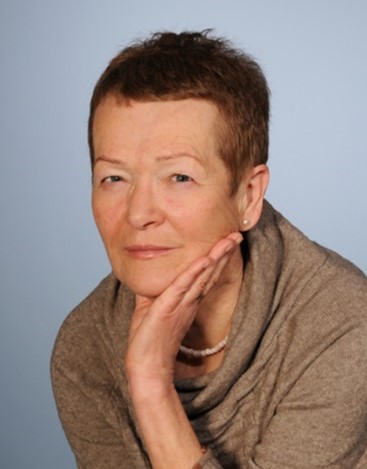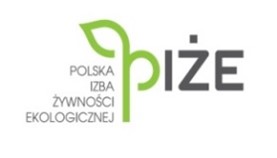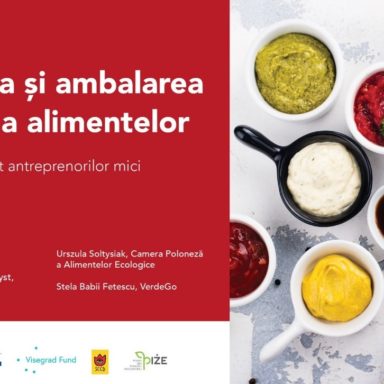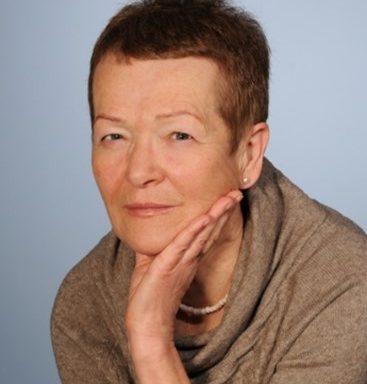V rámci projektu V4 Moldova ECO-AGRO-FOOD – nová perspektíva poľnohospodárstva, sa v pondelok, 25.apríla 2022 realizuje prvý workshop v Moldavsku s poľskou expertkou, Urszulou Soltysiak z Poľskej komory ekologických potravín.
Aká je téma?
Ekologická a zdravá konzervácia potravín na základe mechanických, tepelných a biologických metód, príklady ekologického balenia potravín. Školenie bude v Moldavsku s cieľom transferu osvedčených postupov a skúseností poľských agropotravinárskych výrobcov (25.apríl 2022, Katalyst Kitchen, Riškova)
Okruhy školenia:
- Bezpečné spracovanie potravín na báze mechanických, tepelných a biologických metód je ľahko realizovateľné v malovýrobe, aj ako spracovanie na farme. Ekologické suroviny – regulované právom EÚ a podlieha certifikácii.
- Zakázané sú GMO, nanočastice, ionizujúce žiarenie, reverzná iónová výmena, veľmi vysoký tlak a iné sofistikované metódy.
- Odporúčané balenie: sklo, papier, polypropylén PPE, vákuové balenie.
- Produkty spracované na farme môžu obsahovať až 50 % externých (nefarmárskych) surovín (ako cukor, soľ, korenie).
- Etikety musí identifikovať výrobcu, zložky a v niektorých prípadoch aj tabuľku živín.
#visegradfund
Ecological and healthy conservation of food, based on mechanical, thermal and biological methods, best practices of environmentally friendly food packaging – training in Moldova to transfer best practices and experiences of Polish agri-food producers (April 25, 2022, Katalyst Kitchen, Riškova)
Topics:
- Safe food processing based on mechanical, thermal and biological methods is easy to realize on a artisanal scale and also as on-farm processing. In case of organic raw materials – it is regulated by EU law and submitted to certification.
- Forbidden are GMOs, nanoparticles, ionizing radiation, reverse ion exchange, very high pressure and other sophisticated methods.
- Recommended packaging: glass, paper, polypropylene PPE, vacuum packaging.
- On-farm processed products may contain up to 50% of external (out of farm origin) raw materials (like sugar, salt, spices).
- Labelling must identify the producer, ingredients and in some cases – nutrient table.

Dr. Ursula Soltysiak graduated from Faculty of Horticulture at Warsaw University of Life Sciences. Concerned about the impact of food on human health, she taught Organic Food Production Methods for many years in the Faculty of Nutritional Sciences. Her bibliography includes over 130 publications on organic food production.
She is one of the initiators of organic farming in Poland: in 1989 she co-founded the Association of Organic Producers EKOLAND and in 1996 she initiated the first certification body for organic production,
AGRO BIO TEST, which she managed for 20 years. She is active in International Federation of Organic Agriculture Movements (IFOAM).
Currently, she provides advice on starting organic production in agriculture (conversion) and processing organic products.
She is a spokesperson for the Polish Chamber Organic Food.

Polish Chamber Organic Food (PIŻE) is a sector organization that associates farmers, producers, processors and traders of certified organic food.
Its mission is to promote public education on the health benefits of organic products and the way of growing, breeding and processing organic food. We promote the certification of organic products with the „euro-leaf“ logo and the benefits that the eco-certificate brings to consumers. As a representative of the certified organic food environment, PIŻE is partner for the Polish Ministry of Agriculture and Rural Development.
We provide opinions on legislative projects concerning organic food and lobby for the introduction of organic products to schools, kindergartens
and other public institutions.
Galéria







